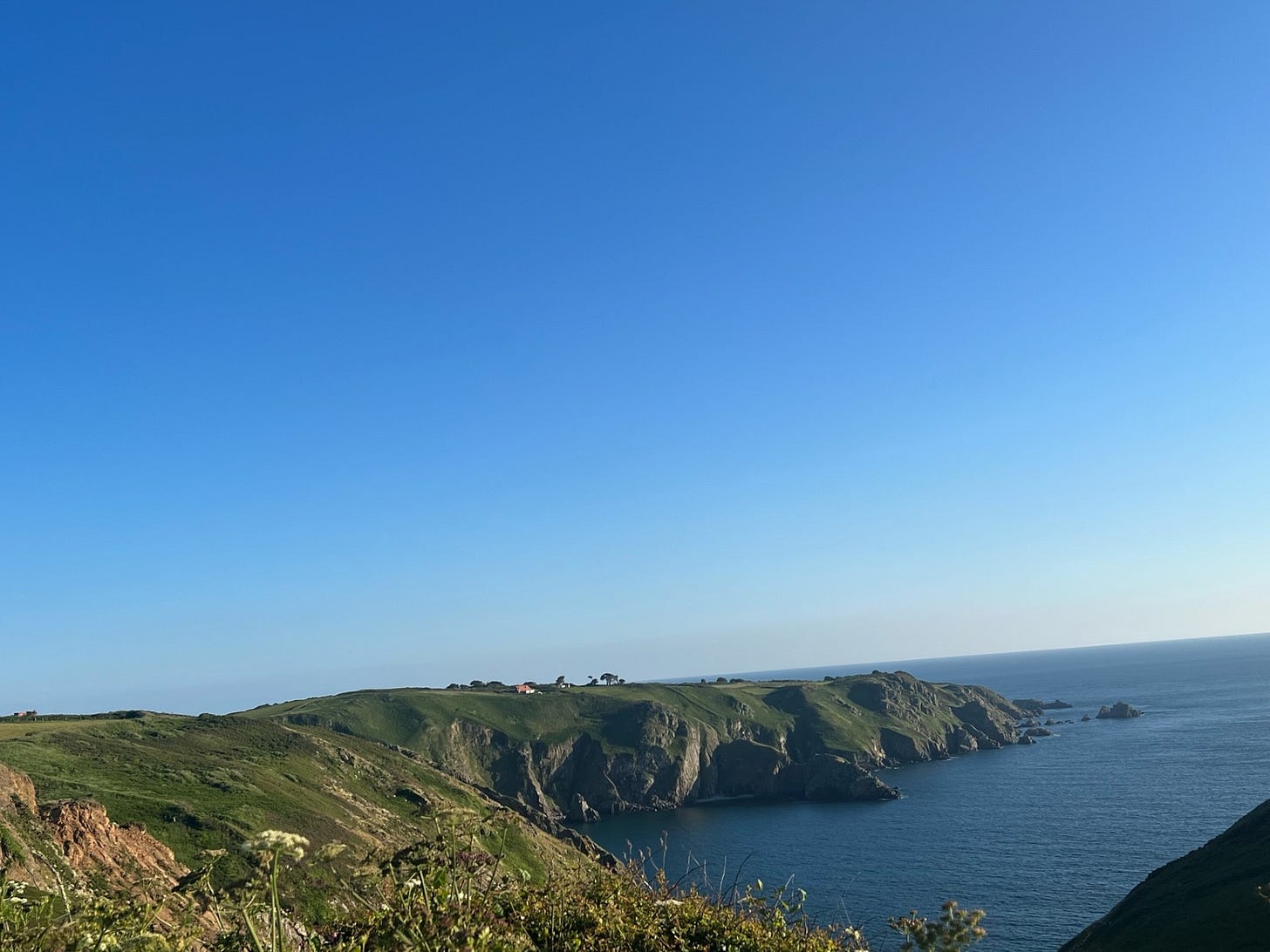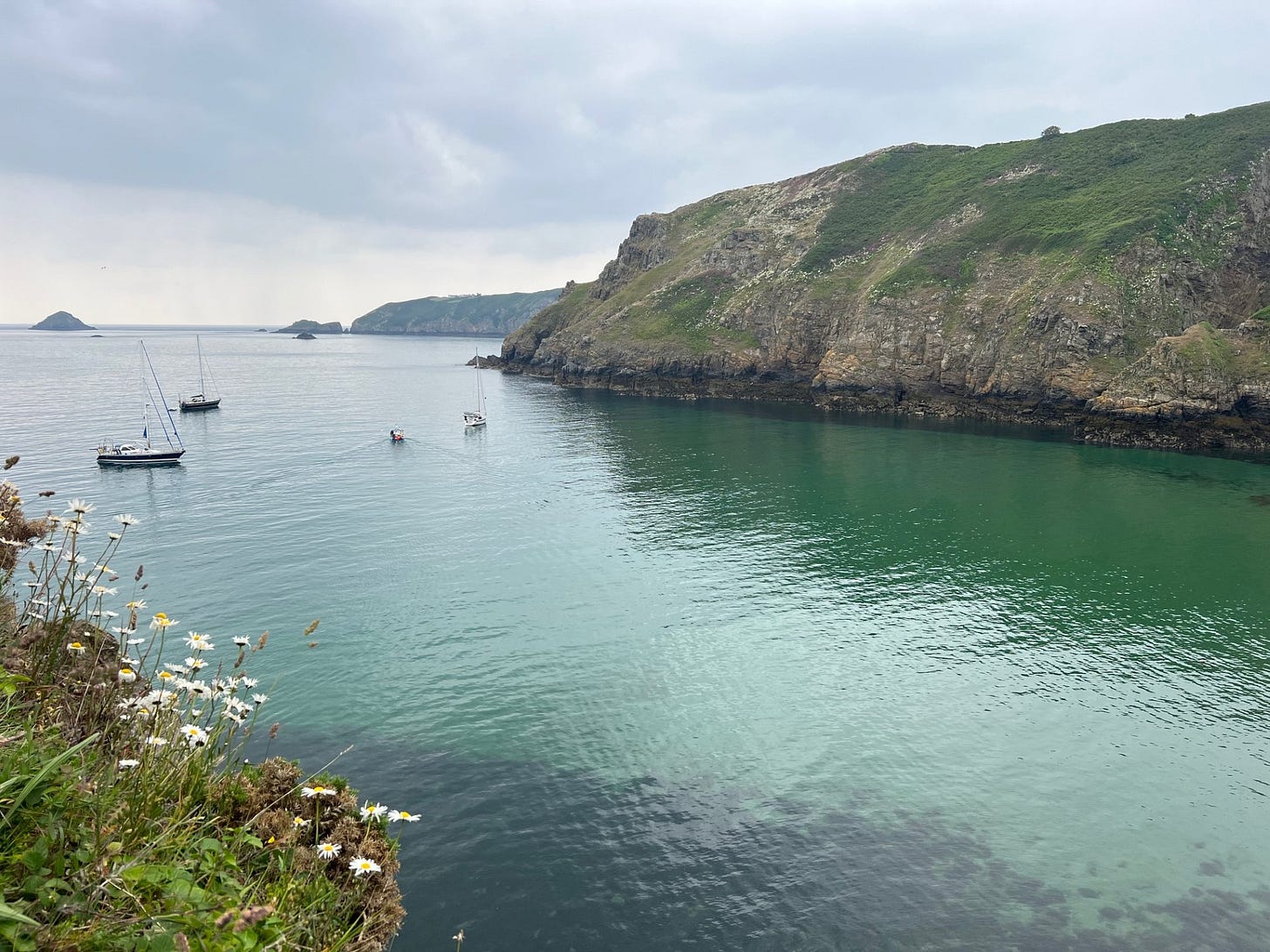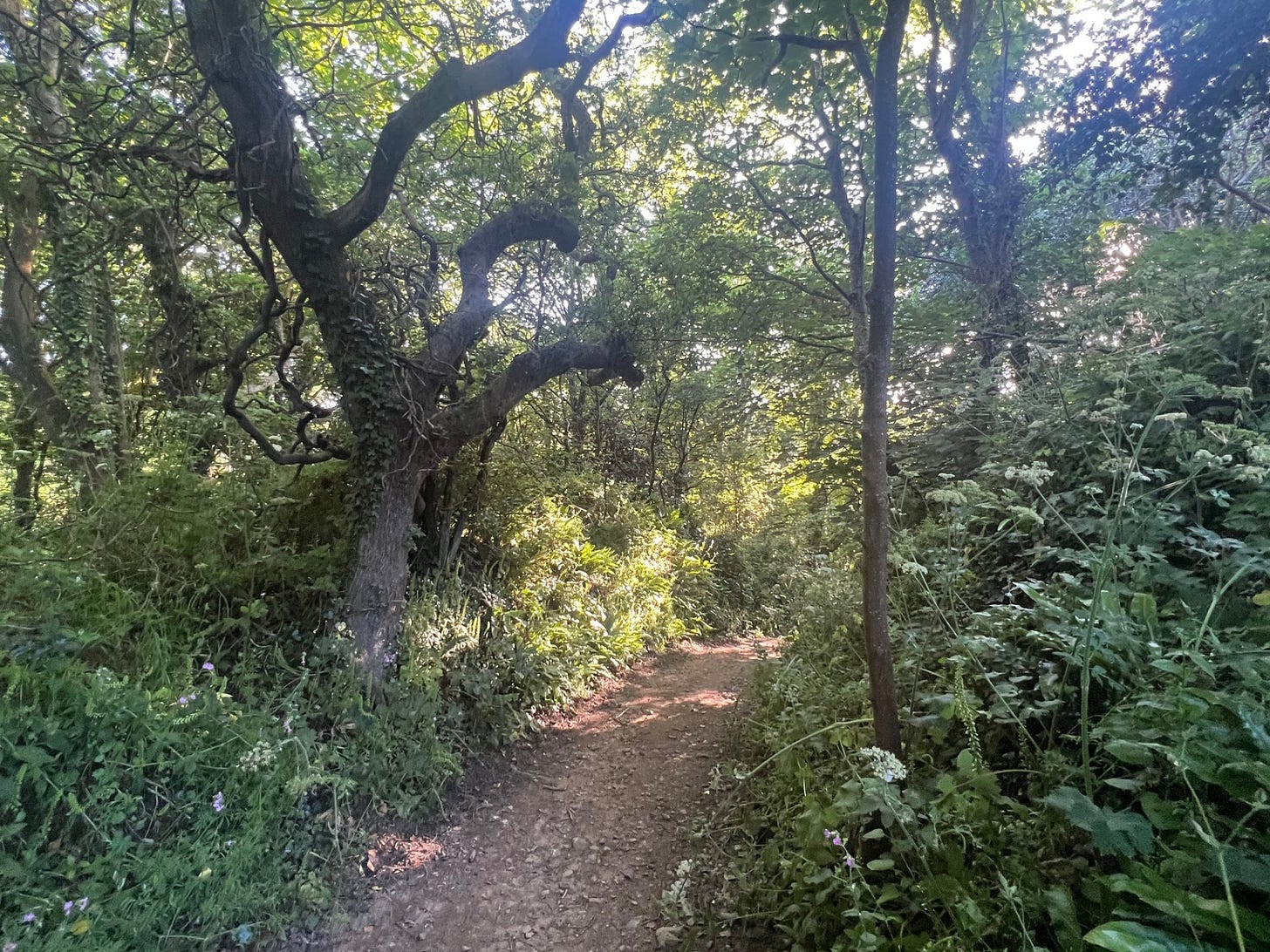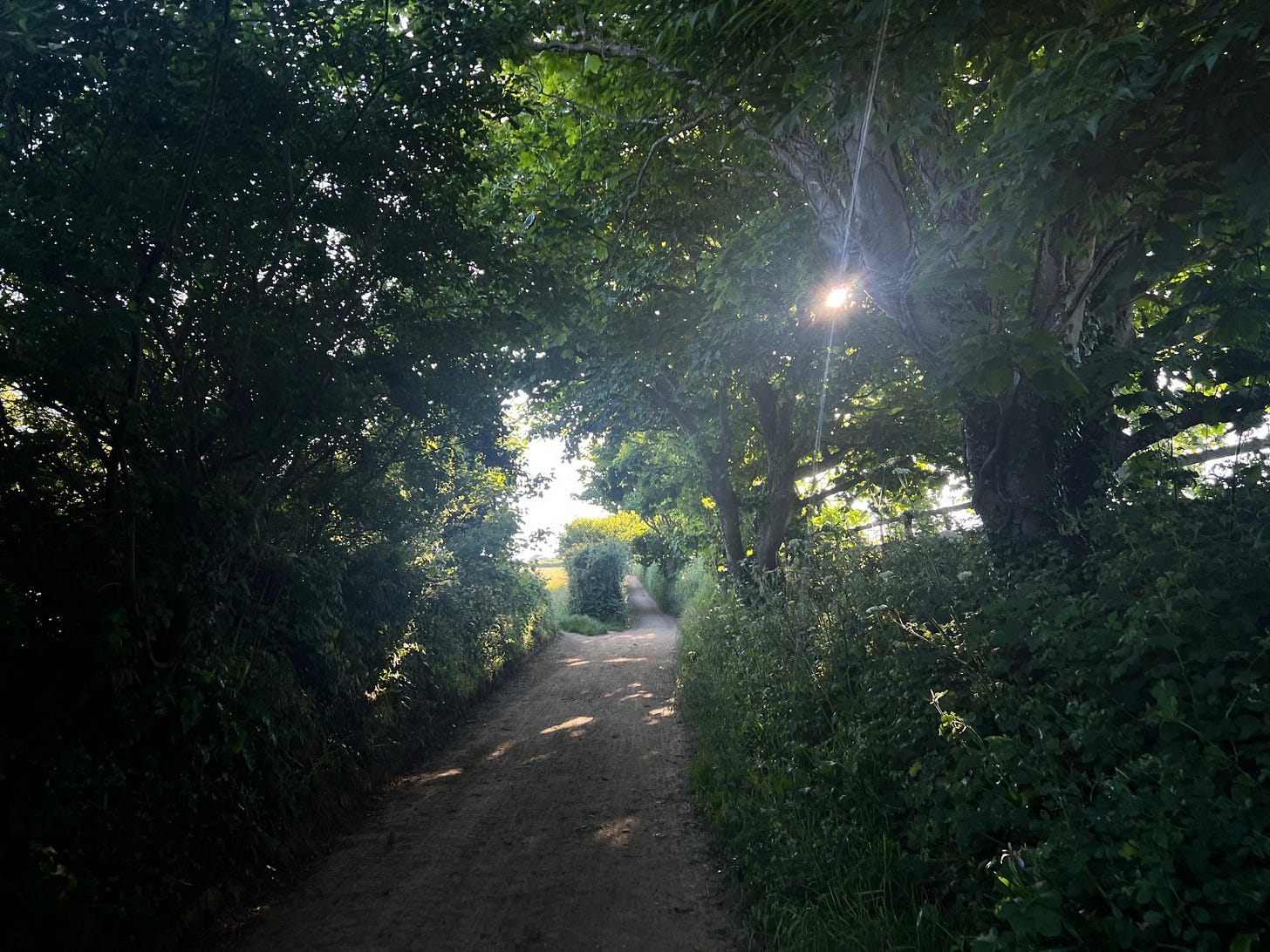The Island of Sark (Post in Western Neo-Aramaic)
I have recently had the great fortune of visiting the island of Sark, one of the Channel Islands located between England and France. Here, cars are banned. There are also no street lights, meaning that there is very little light pollution. On a clear night with no moon, it is possible to discern the Milky Way.
I long ago took an interest in the island not only because of its lovely rural environment and natural beauty, but also because of its dialect of the Norman language, dubbed Sarkese or ‘patois’ among the locals. Unfortunately, Sarkese is moribund. While recent media reports have noted that there were three native speakers remaining, it turns out that one of them (Esther Perrée) died only a few weeks ago. The island’s oldest inhabitant- Nellie Le Feuvre, currently aged 97 and whom I have met- does not speak the language though says that she understands it. Fortunately, a Czech linguist called Martin Neudörfl has been doing vital work to preserve and codify the language in written form from remaining speakers and ‘rememberers’ of the language. I have had the pleasure of getting to know Martin via phone contact, and his own efforts reminded me of my work to preserve written examples of Western Neo-Aramaic. Accordingly, below is a short description of the island of Sark in Western Neo-Aramaic, written in the most endangered dialect (that of Bakh‘a) and with Arabic and English translations. I also include some photos of the island.
جزيرتا سارك منوجستا بقنوثا انكليزوي بل بريطونيا وفرانساونوفكن سوكنو حامش أمعة أحذ يعني ، ومشسغلين اكثريثون بزروعسا وبسيوحسا ويبن محكين لهجثا نورمانوي مزبنو ونشول لهجثون اصلويثا انكليزي أيموذ وتوبون ثلوثا سي يوذعن لهجثا أصلويثا . ومرويل لجزيرثا مشسغلين بحلبا حيلا طب وزوبثا وقشثا ( كريموي)وشوكليطا
وسي ليزم ينيذع و مكينيوثا ممنوع بجزيرسا . وسحوم حيلا نجموثا بليليا. وب نيظوم سيوسي بجزيرسا عيبورسا أقطاعوين أكظم مايثكنن ديمقراطوين.
بيثو ربين وأوث سعرو علين حيلا.
وأمثا هيل رحمول عيشسا بسيطوي
"The island of Sark is located in the English Channel between Britain and France and there are around 500 inhabitants. Most of them work in agriculture and tourism. They used to speak a Norman language in the past but they have forgotten their original language and now speak English. There are no more than three people who speak the original language. The island’s people produce very tasty milk, butter, cream and chocolate.
It should be noted also that cars are banned on the island. You can see many stars at night. There was a political regime on the island that was basically feudalism before they transitioned to democracy.
The houses are big and there are very high prices, but the people here like their simple life."
تقع جزيرة سارك في القناة الانكليزية بين بريطانيا وفرنسا وعدد سكانها ٥٠٠ نسمة تقريبا. يشتغل معظم اهاليها في الزراعة والسياحة. كانوا يحكون لغة نورمانية في الماضي ولكنهم نسوا اللغة الاصلية ويتكلمون الانكليزية اليوم. ولا يوجد اكثر من ٣ اشخاص يعرفون اللغة الاصلية. ان اهالي الجزيرة يصنعون الحليب الطيب والزبدة والقشدة (الكريم) والشكولاتة.
من الجدير بالذكر ان السيارات ممنوعة في الجزيرة. ويمكنك او ترى الكثير من النجوم بالليل. كان النظام السياسي في الجزيرة عبارة عن الاقطاعية قبل التحول الى الديمقراطية.
البيوت كبيرة هناك والاسعار عالية جداً. رغم ذلك يحب الناس حياتهم البسيطة.
نجموثا بشمو
Stars in the sky
النجوم بالسماء
بيثا تي ليندا ويليامس
Linda Williams’ house
بيت ليندا ويليامس

















Fascinating and terrific photos. Thank you. re: the author's interest in Neo-Aramaic... I assume you might be familiar with the work of Yona (Sabagha) Sabar? ...and the memoir his son wrote about his life: My Father's Paradise - A Son's Search for is Family's Past.